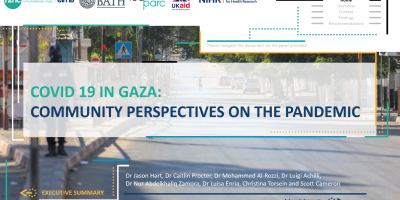In the past decade and a half, children in Gaza have endured six life-threatening situations – five escalations in violence and a pandemic – as well as a life-limiting land, air and sea blockade imposed by the Government of Israel since June 2007. It is no surprise that UN Secretary General, Antonio Guterres, has described the lives of children in Gaza as “hell on earth”.
In 2018, Save the Children undertook research on the impact that living under blockade and protracted instability and cyclical violence has had on children’s psychosocial wellbeing in Gaza. In 2022, after another escalation in violence in May 2021 and following the COVID-19 pandemic, Save the Children consulted a further 488 children and 160 parents and caregivers to see how things have changed for children living in the Gaza Strip. The study found that, since 2018, the psychosocial well-being of children, young people and their caregivers has declined dramatically to alarming levels.
The findings in this report must serve as an alarm bell. They show, once again, that the loss of children’s lives, well-being, and hopes for a better future are the costs of things remaining as they are. The most urgent step required is lifting the blockade on the Gaza Strip, support must also be given to increase the resilience of children and their families to cope.
Together, we must ensure that a generation of children is spared a life of fear, distress, and limited opportunities.



